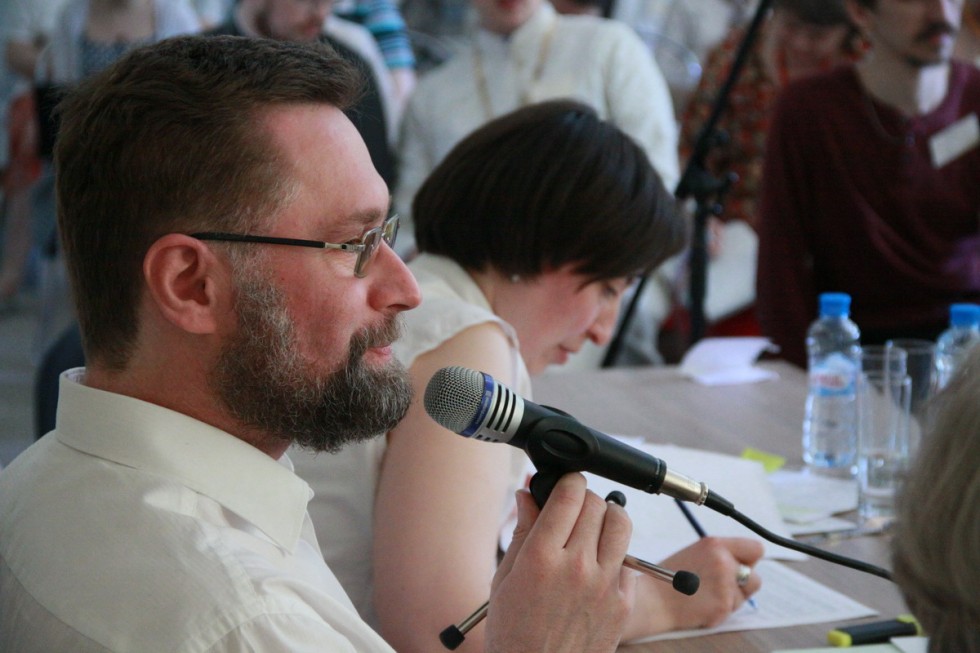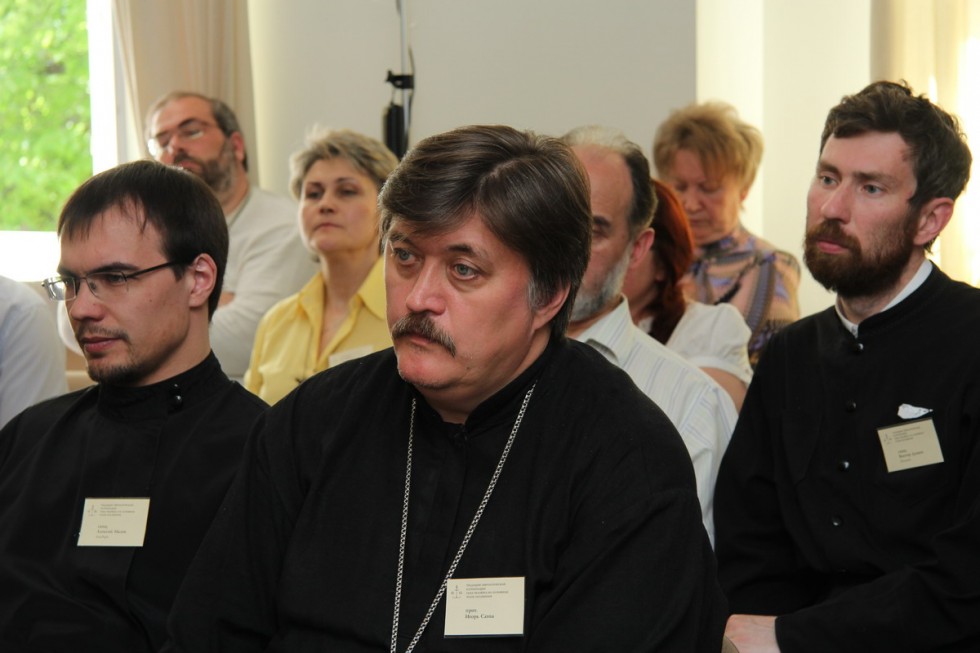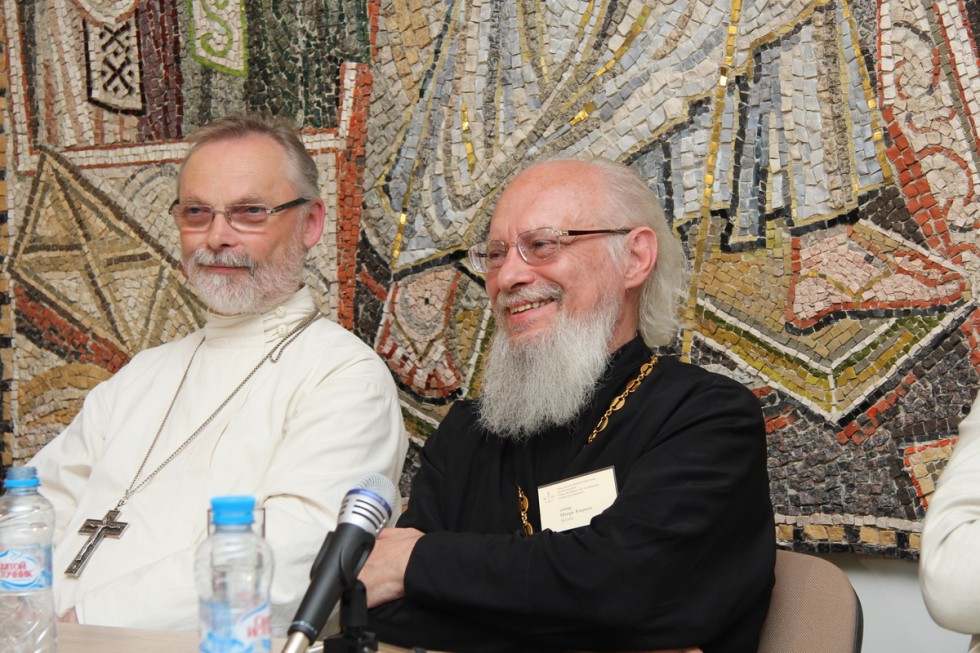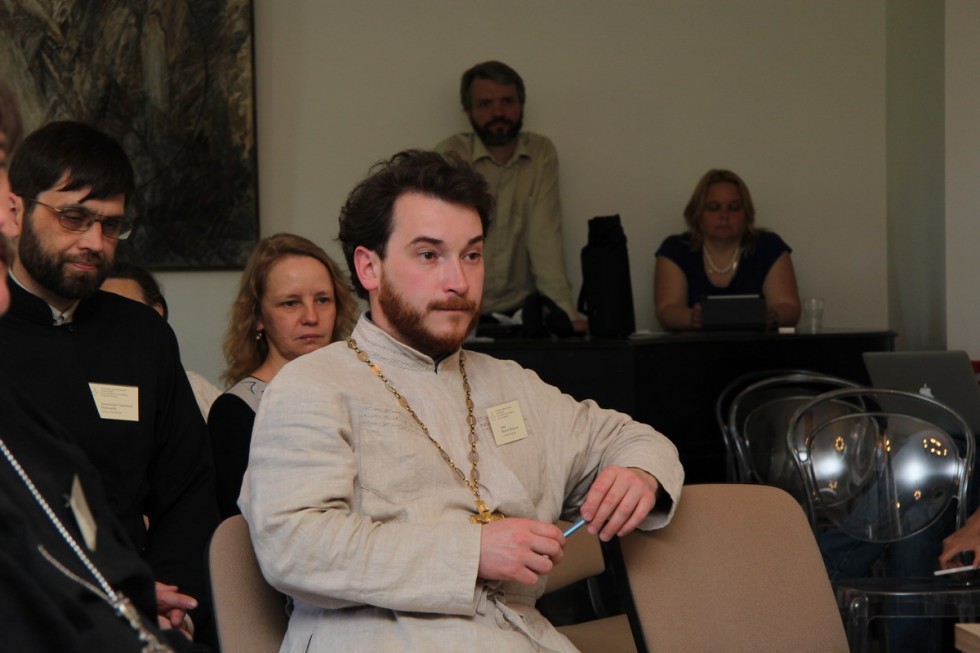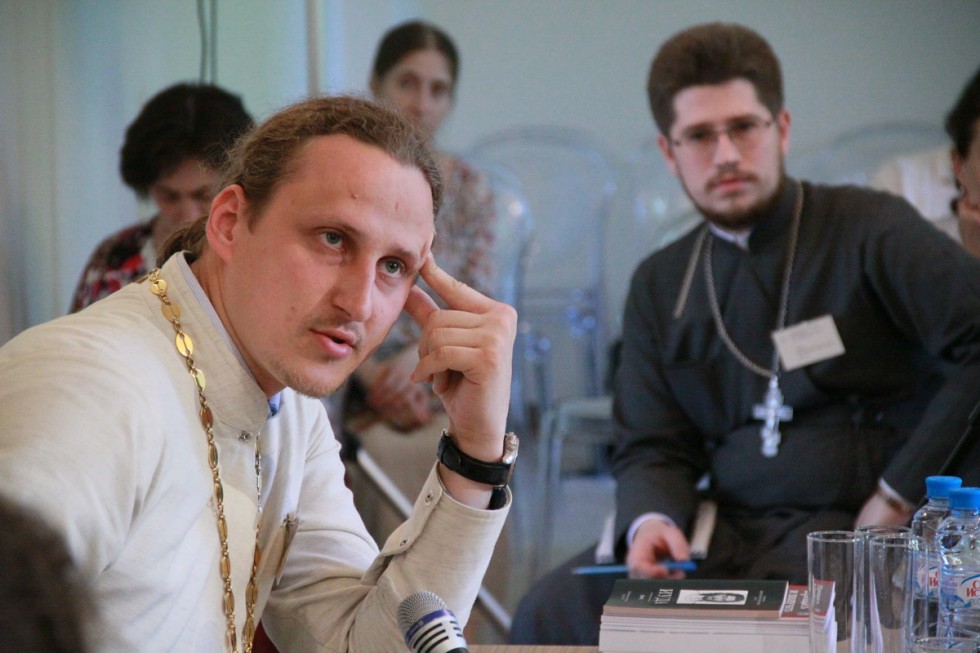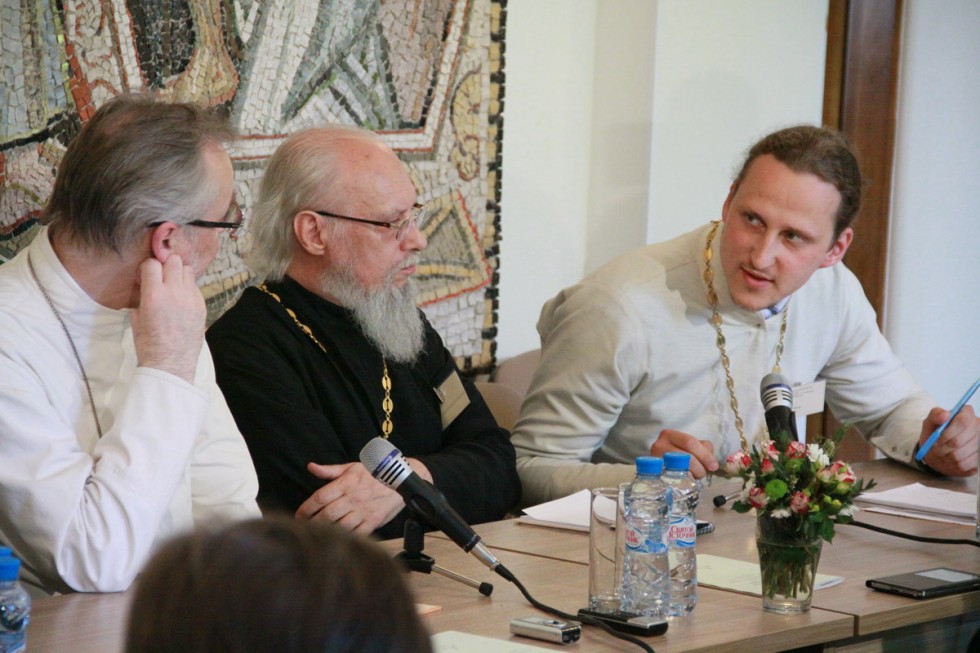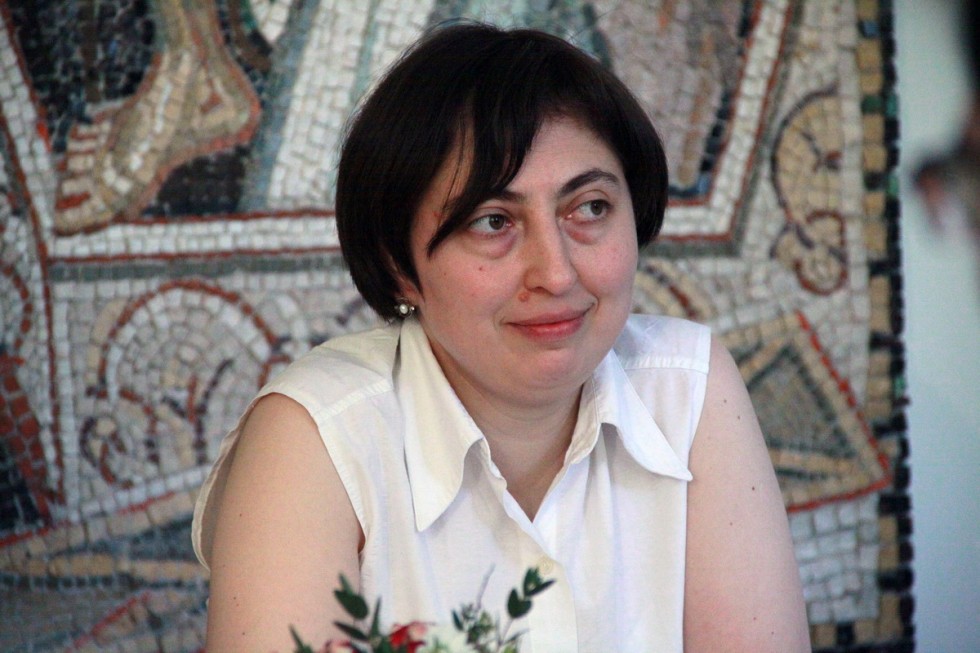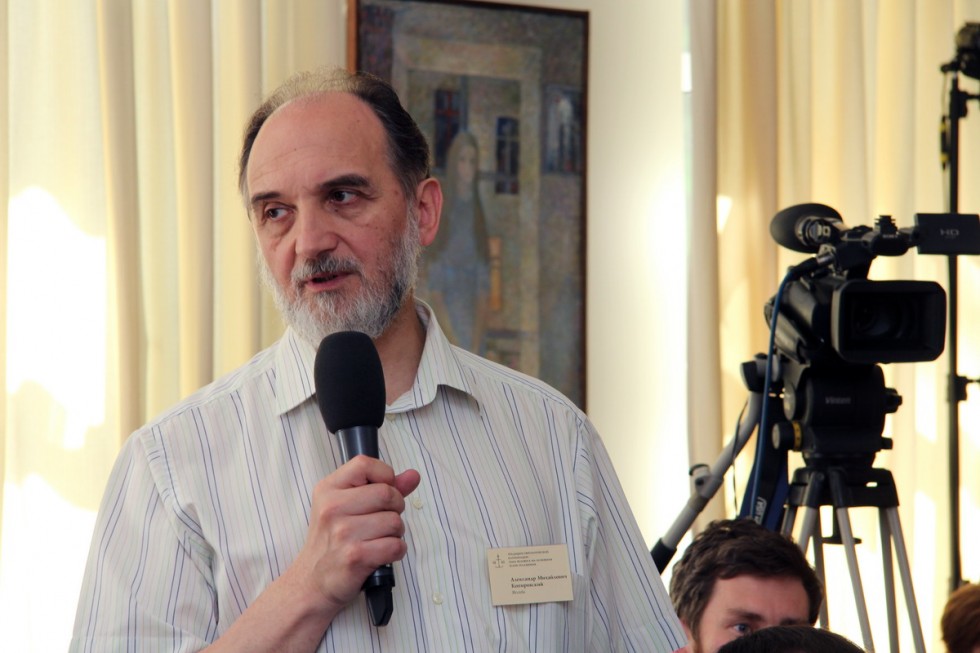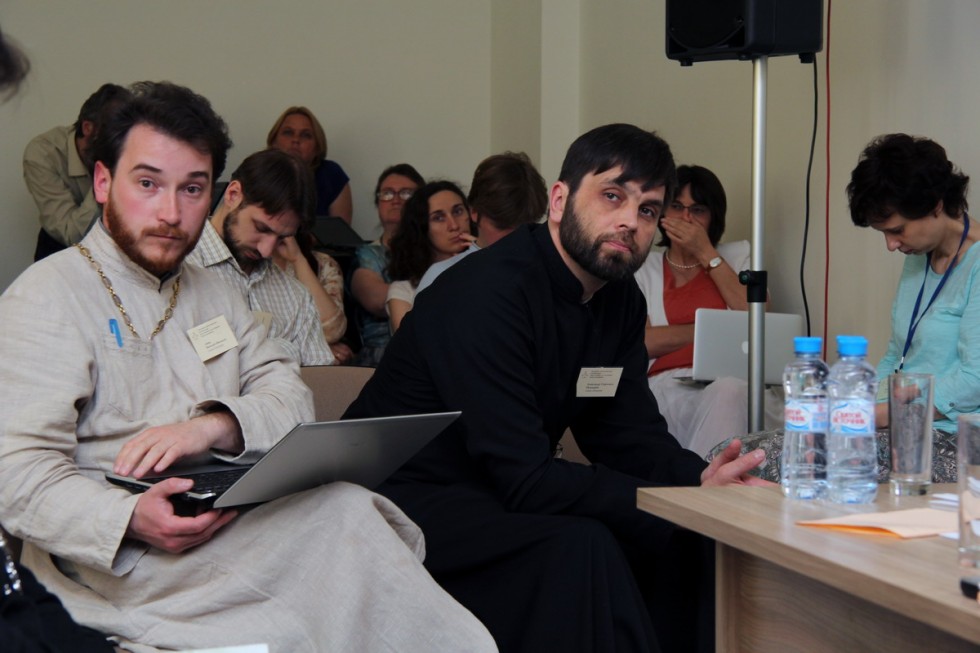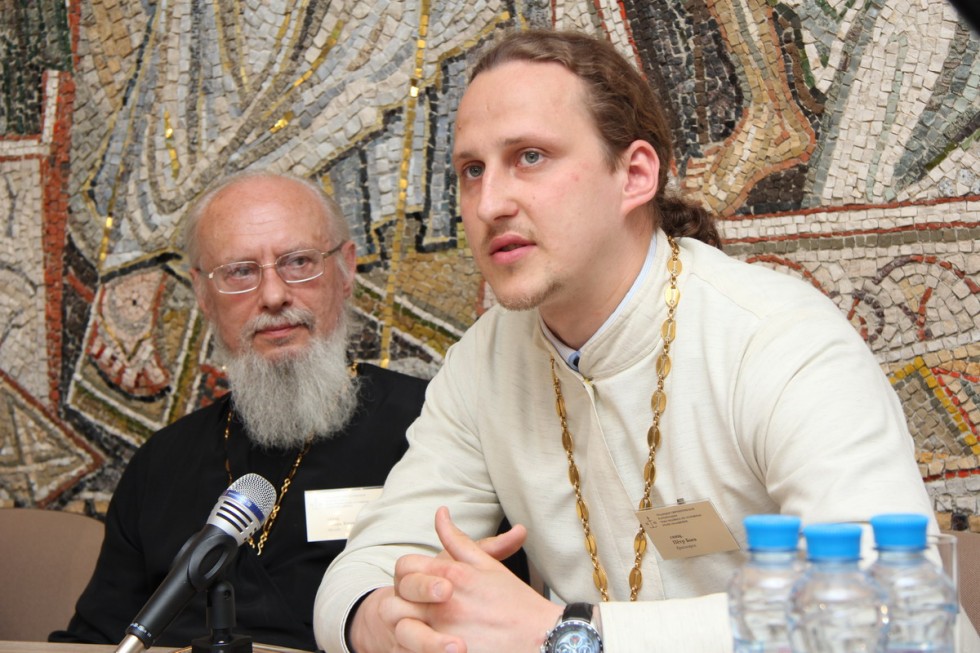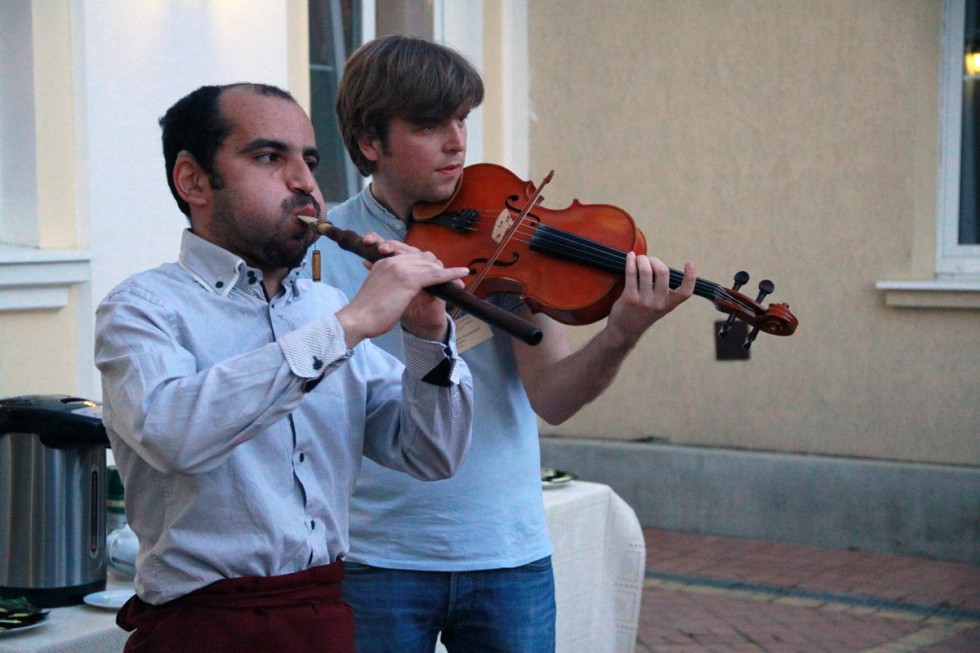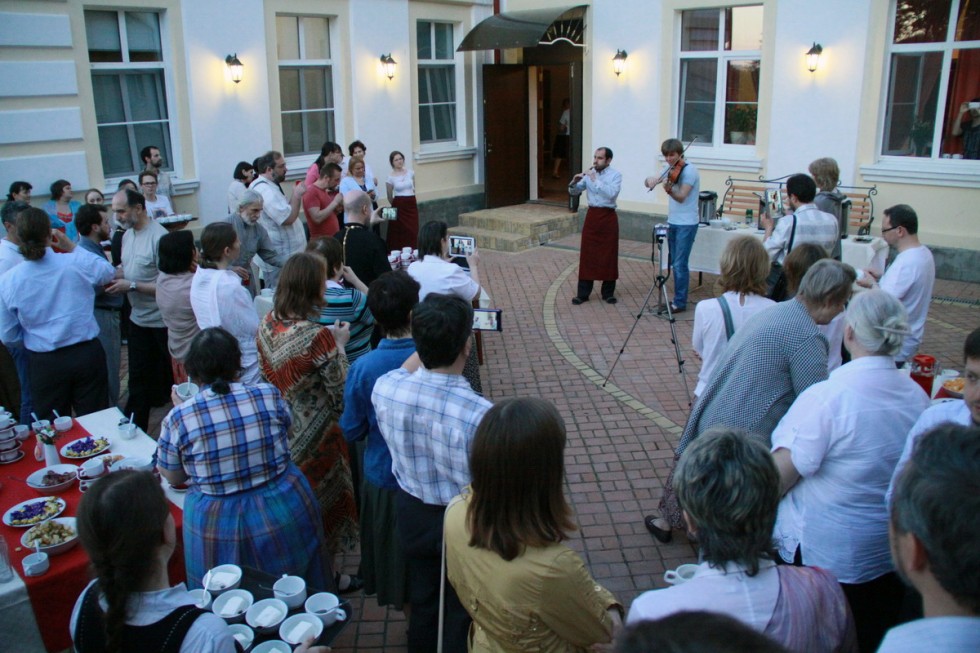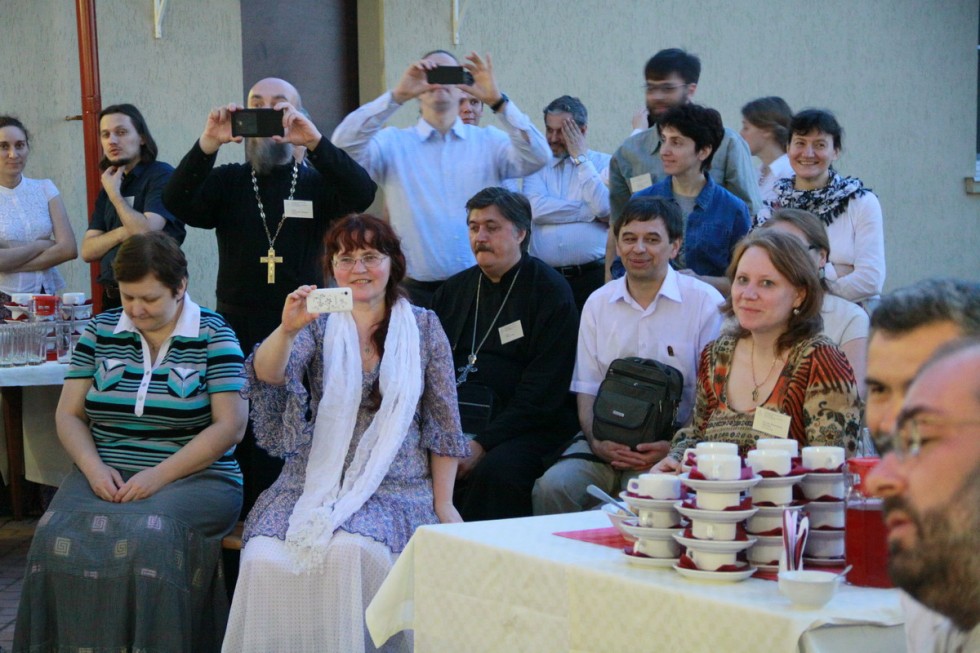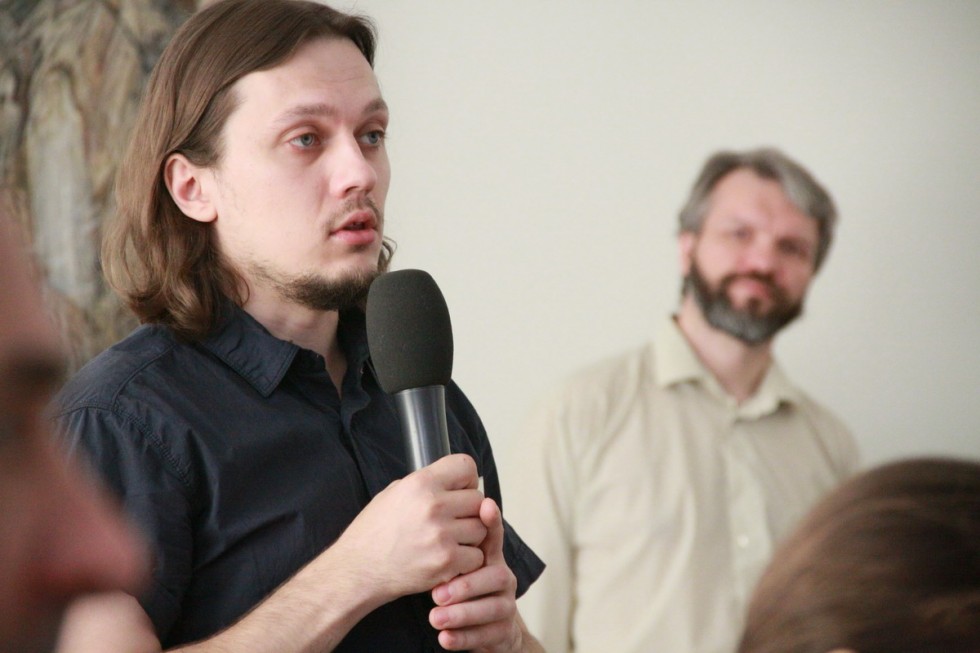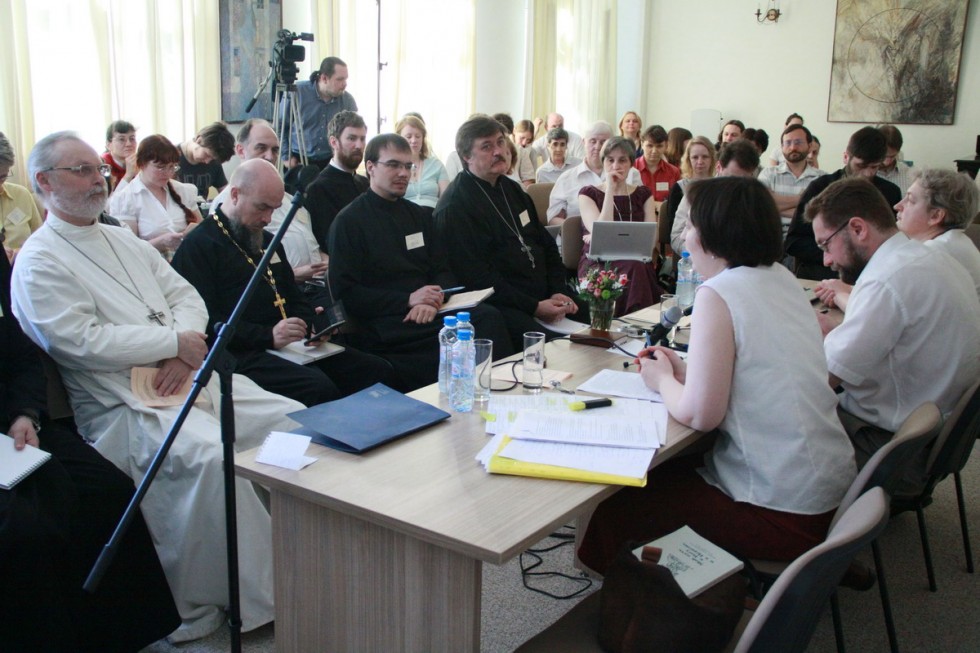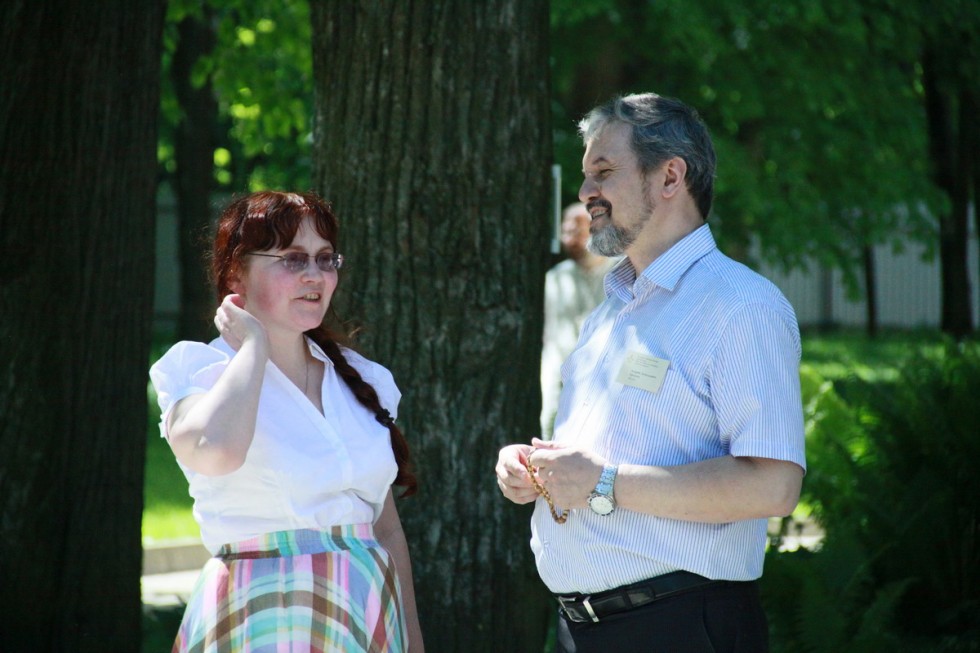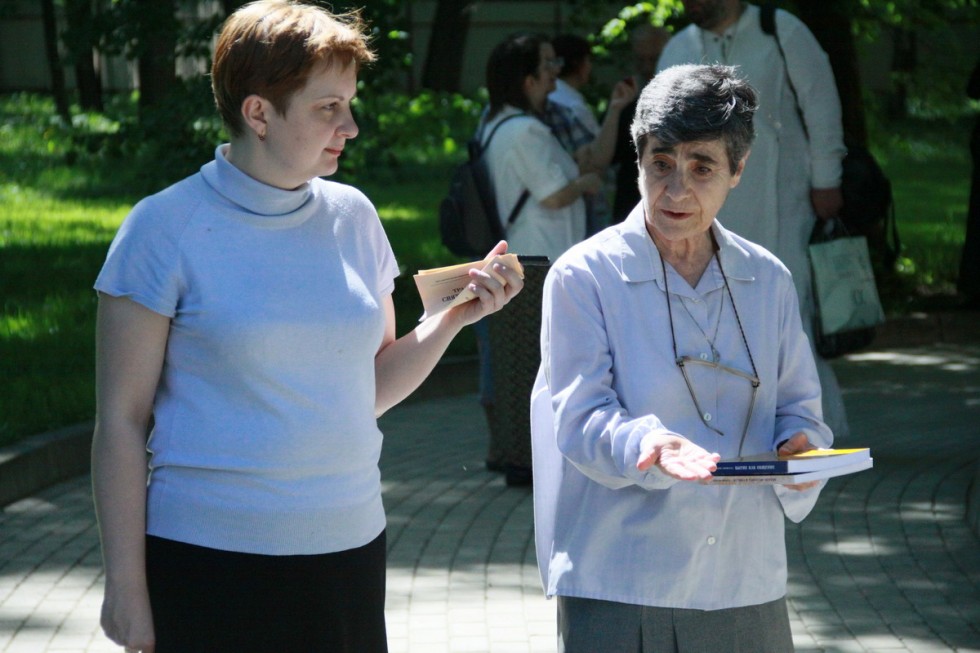Christ Provides No Guarantees
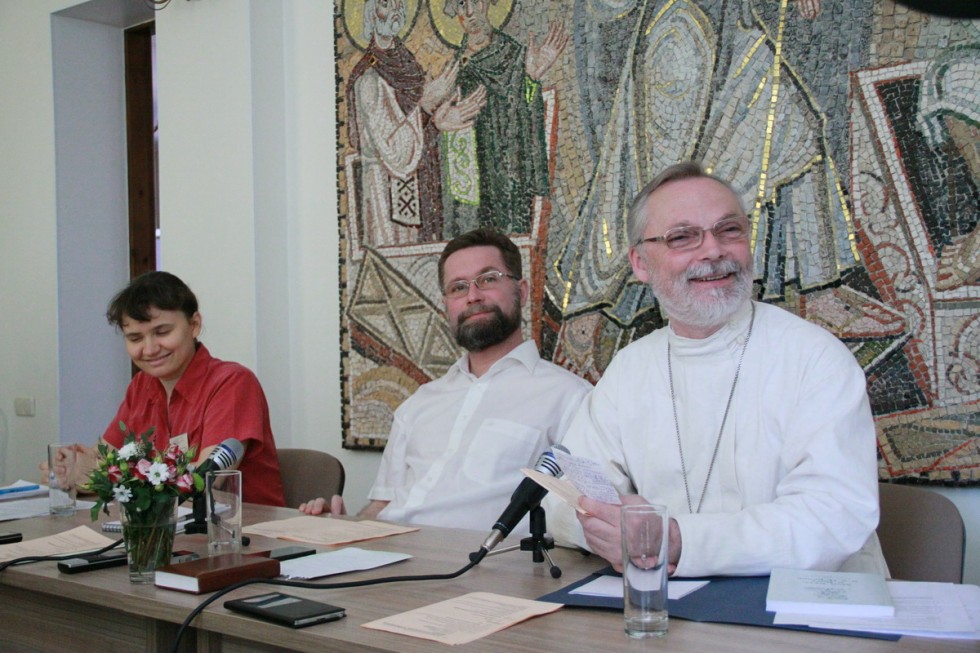
Catechism is among the most urgent issues in the Russian Orthodox Church today. Although the need for catechism for both baptized and non-baptized people has been recently recognized, still many theological and practical questions need discussion. Among them are the issues of carrying out the catechetical process, the balance of teaching and practice within catechism, its aim and duration (which varies between one day and two years in different practices), the criteria of readiness for baptism (what constitutes the completion of the catechetical process), participation of sponsors and church community (which is being a stumbling block per se for there’s no agreement on what community is, and whether parish can be regarded as community), training of catechists, and many others.
The major problem for people on their way to God is to learn how to act firmly according to their faith, and not according to their life circumstances. “It is difficult because people are used to seeking guarantees,” said Dmitry Gasak, catechist and vice-rector of St. Philaret’s Institute. “And Christ has never provided any guarantees”.
What questions do people ask at the beginning of their way into the Church? The testimonies of those who have received catechism in Transfiguration Brotherhood during the last twenty years were studied by Anna Aliyeva, a PhD in Sociology, as well as a catechist and lecturer at St. Philaret’s Institute. As they start their catechism, many people have an abstract concept of God and of Christ, or feel offended by God. Even many of those who regularly attend divine services and receive the sacraments neither understand what goes on in a church, nor how the Holy Scripture and prayer correlate with their lives. By the end of catechesis, many people realise that the Lord had been leading them throughout their whole lives, long before they crossed the threshold of a church or started receiving catechism.
Father Georgy Kochetkov, Rector of St. Philaret’s Institute, spoke about general confession of one’s whole life, which takes place at the end of the main stage of catechism. He outlined a few recommendations concerning helping people to it make it non-formalistic and fruitful. In particular, he warned priests and catechists helping people prepare for general confession to refrain from using “lists of sins” one can buy in a church, and recommended having confession be drawn from one’s personal life history and the ten commandments of Moses instead. It is important for people to see that the general confession is not a session of psychotherapy but an opportunity to regain freedom from sins, he added.
Catechist Svetlana Sonina made a presentation on catechetical instruction for persons with special needs. She pointed out that, according to the faith of the Church, everyone is worthy of being taught in the faith. Catechetical instruction of the developmentally disabled, as well as the elderly and dying, is a challenge to the Church. No one can live in the Church on his own, and in the lives of such people it is particularly noticeable. Catechists and sponsors have to show finesse, love and faith: such people are restrained in their mental development but it does not mean they cannot grow spiritually.
The theological conference brought together 90 people — practising catechists from 5 countries and 21 dioceses, including representatives of the Kuzbass Theological Seminary, The Russian Orthodox University, St. Thaddeus’ Courses for Catechists, The Section for the Cooperation of Church and Society of the Krasnoyarsk Diocese, St. Petersburg Higher Catholic Seminary to Mary Queen of the Apostles, and St. Philaret’s Institute.
The participants decided to dedicate the next conference either to the third stage of catechesis, mystagogy, or to the issues of catechetical instruction of persons with special needs.
***
Being an independent institution for theological higher education established in Moscow in 1988, St. Philaret’s Christian Orthodox Institute focuses on educating catechists, as well as on theological research of the issues concerning preparing people for conscious and responsible Christian life. The Institute’s activities are supported by the experience of mission and catechesis of adults started in 1970s by Georgy Kochetkov, current Rector of the Institute. This mission is now being continued by the Transfiguration Fraternity, the Christian movement founded by Fr. Georgy.
The priorities of the Institute’s educational and scientific activities also include liturgical issues, including modern Russian translations of the liturgical texts, the issues of dialogue between Church and society, as well as theology and science, Christian anthropology and ecclesiology, and Church history, particularly the experience of the new martyrs and confessors of Russia closely associated with the history of the communities and brotherhoods movements in the Russian Orthodox Church.
